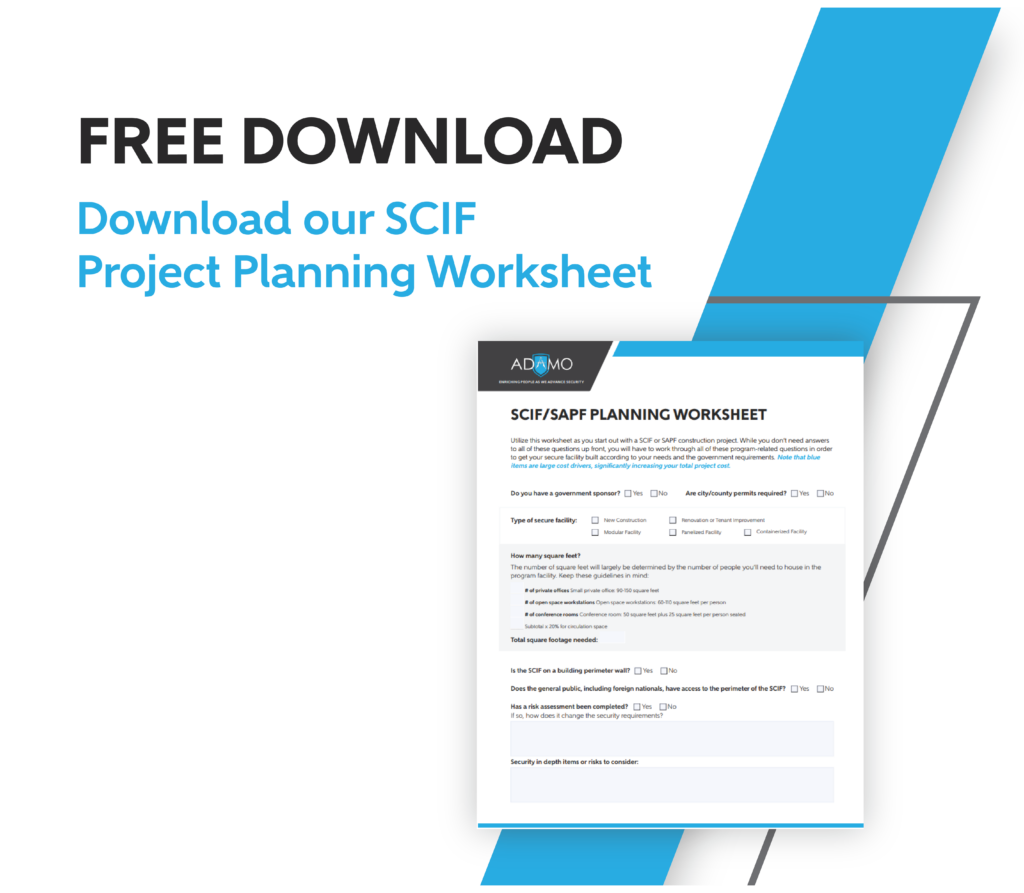The ICD 705 de-accreditation process and how the facility can be re-accredited
The development of a SCIF or SAPF is a long and often incredibly expensive process. When you’ve invested so much time and money into a facility, the last thing you want is to lose the accreditation that you worked so hard to get. However, thanks to allowances made in the ICS 705, de-accreditation doesn’t have to be the end of your SCIF. What causes this de-accreditation? And if your facility is de-accredited, what can you do with it after?

Reasons for De-accreditation
There are two main reasons for de-accreditation. The first is a failure to maintain security requirements. If there’s a concern that the information within the facility may be compromised or the official inspecting the space doesn’t feel comfortable with the space continuing to operate, they may face de-accreditation. This is a fairly uncommon occurrence, but it does happen. It’s crucial for anyone operating a facility to know their requirements and ensure that employees are following protocols like properly storing classified documents or materials at the end of each day.
The second is when there is no longer a program operating within the facility. When one program ends, if the space isn’t servicing another mission, the space will be de-accredited. This is a situation in which you can seek out re-accreditation. For most companies that have a SCIF, they’re an expensive facility. Losing the accredited space could be a major blow, so re-accreditation is of the utmost importance.
Reaching Re-accreditation
It’s a common practice for a company to allow a space to be de-accredited while they try to find a new classified contract to occupy the space. If they want the facility to be re-accredited, they need to control the facility at the secret level as specified by the ICD 705 Tech Spec. If they meet this requirement and it has been less than a year since the facility has been de-accredited, they can be re-accredited relatively easily.
If the program was accredited under previous standards, it may be able to be re-accredited under those same standards. However, if there have been major modifications to the SCIF, changes to the sensitivity of the program or an increased risk or threat level in the area, the facility will need to be brought up to current standards.
SCIF re-accreditation can be a speedy process, though this depends greatly on your Accrediting Official (AO), their caseload and your relationship with them. You can expect this process to take an average of two months, but it could be a matter of days. A de-accredited SCIF is still in the SCIF repository and has a SCIF ID, so the AO can access that information and re-accredit the SCIF very quickly. As always, your best bet is to communicate clearly with your AO and try to build a positive working relationship, providing them with everything they need quickly so things can run as smoothly as possible.
If it’s been more than a year since the facility has been de-accredited, the process becomes much more difficult. The ICS specifies that in this situation, an AO will evaluate the facility and make decisions on a case-by-case basis. It’s not impossible to achieve re-accreditation in this situation if you’ve been controlling the facility at the secret level the whole time, but the longer it’s been since the facility was de-accredited, the more likely the AO is to be concerned about the facility potentially being compromised. In this case, it’s more likely you’ll have a space you can operate as a secret area rather than receiving re-accreditation.
For the most part, it will be simplest for companies to find someone from the same user group to occupy the facility, like going from one Air Force program to another. This is in part because some organizations will have different expectations for the facility. However, if there is a new user group moving into the facility, they’ll need a Multi-Use Agreement.
If you’re looking for help with re-accreditation or have any questions about the SCIF accreditation process, Adamo can help. Our consultants can partner with your team through any stage of your project lifecycle. With a 100% accreditation rate, Adamo is a SCIF construction partner you can trust.




